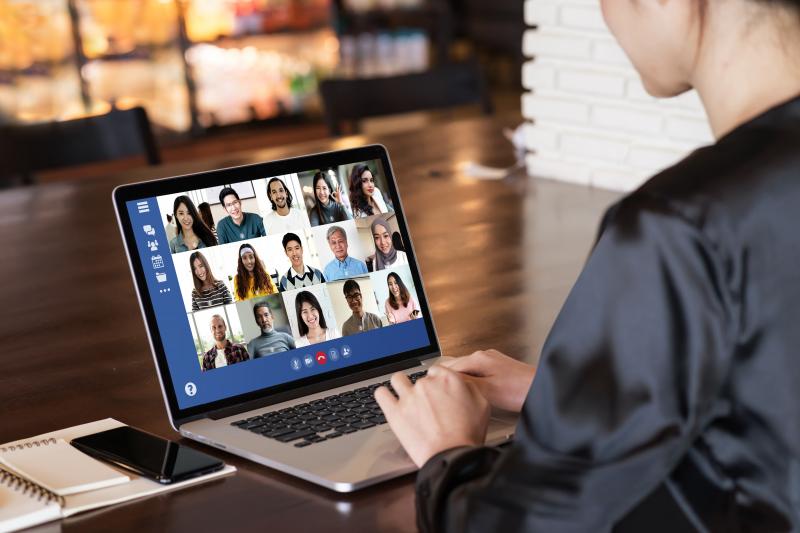Recovery During COVID-19: Tips for Women Returning to Work

One of my proudest accomplishments in 2019 was the opportunity to contribute my expertise to the U.S Chamber of Commerce Foundation’s Sharing Solutions campaign. Over the course of several months, I embarked on a National Tour where I addressed business leaders on their approach to being part of the solution to combat the opioid crisis in communities hit hardest by the epidemic. The goal of the campaign was to raise enough awareness on the local level to reach national business leaders. This is an active undertaking I am making strides towards as a member of the Advisory Board for the U.S Chamber of Commerce Foundation today.
To help in this cause, it is imperative we bring awareness to populations disproportionately prone to substance use disorders, such as the increased number of working women, and share what businesses can do for women going through recovery while unexpected new life changes arise during the COVID-19 pandemic. Undergoing recovery during a time of uncertainty and isolation, feelings resulting from COVID-19, have posed new challenges for women who are experiencing significant life-changing scenarios we call the “new normal”. Whether it is balancing life at home with essential work, stresses with going into the office every day, returning back to the office after months working remotely, or actively looking for new work after a furlough or layoff, women in recovery are at heightened risk for relapse during this time.
Our focus on substance use disorders disproportionately affecting women is continuing to increase at a much faster rate in recent months due to the pandemic but has been on the rise according to this 2017 report from the Center for Behavioral Health Statistics and Quality (CBHSQ) of the Substance Abuse and Mental Health Services Administration (SAMHSA). According to the report, in the United States, 8.4 million females misused prescription drugs and 19.5 million females aged 18 years old and older have used illegal drugs. Of these women surveyed, their reasoning for using illicit drugs in the past, or present, was to mask symptoms of depression, anxiety and fatigue (NIDA, 2019). According to the Centers for Disease Control and Prevention (CDC), increased fear and anxiety are among the top mental health concerns we are seeing during the pandemic.
According to the National Institute on Drug Abuse (NIDA) at the National Institutes of Health (NIH), differences in sex and gender impact the progression that both women and men experience when using and misusing opioids. Results from the most recent 2019 National Survey on Drug Use and Health from SAMHSA highlighted that the percentage of people aged 12 or older with a past year substance use disorder remained stable from 2015-2019. Among the 20.4 million (both women and men) reported in 2019 with a substance use disorder, 71.1 percent were affected by alcohol use disorder, 40.7 percent an illicit drug use disorder, and 11.8 percent both an alcohol and illicit drug use disorder. On the heels of National Recovery Month, mental health organizations are working to bring awareness for those who are affected by a substance use disorder or know someone who is affected.
COVID-19’s negative impact on the average working woman and their family situations can further prompt a substance use disorder or relapse in women in recovery. According to the COVID-19 Impact two-thirds of parents have changed their childcare arrangements due to the pandemic, which has led to added stress in the home. This has increased the concerns for being let go from one’s job due to the inability to manage the balance between their children’s academics and their workload.
We’ve compiled a list of recommendations for business leaders who are looking for ways to foster protocols that make work transitions easier on their employee, all of which provide peace of mind during life’s stressful events:
- Work with your company personnel to develop an action plan best suited for their level of comfort and openly discuss these protocols, make it visually apparent in the office, and periodically ask staff for feedback.
- Provide consistency in the office. Brainstorm midday or mid-week breaks where employees can gather together, have open discussions or participate in mindful meditations as a group to help ensure everyone is in this together.
- Encourage open dialogue for employees, especially with managers. Look for ways to support this dialogue so that everyone feels connected and welcomed to reach out with any concerns.
At The Bizzell Group, one of the ways we are taking an active approach to raising awareness of substance use disorders in women is by partnering with the U.S. Department of Health and Human Services (HHS) Office of Women’s Health (OWH) to support the Combatting Opioid Misuse Among Women and Girls: Prevention Strategies at Work. 18 grantees and 75 participants discussed projects in 12 states focused on preventing substance use disorders for girls ages 10 to 17, women of reproductive age, and older women.
The goal was to improve health care delivery by holding discussions around community engagement, pregnant and postpartum women and infants, youth education, training, and capacity building for the clinical workforce, pain management, and health IT and innovation. With the goal to bring awareness for women prone to relapse during this time, we need to call on the business community to develop protocols for their businesses to ensure the safety of women prone to turning to abusing illicit drugs and misusing prescription medication for challenging, uncertain or new life events.



